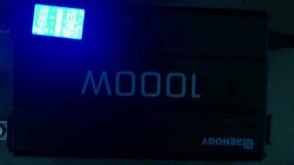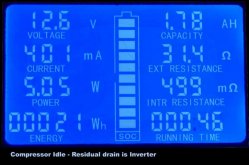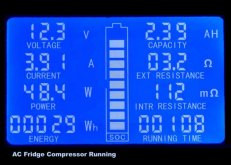OnTheRoadAgain
Solar Enthusiast
- Joined
- Feb 22, 2021
- Messages
- 643
I am not arguing about anything, I am just pointing out what inverter will draw even when there is no load connected. I use inverters myself.
The 1A draw do added to the tatal power draw.
BTW, did you actually using current meter to verify the current draw instead of using Jackery as the measuring device?
I'll do some more tests and circle back on that.
I'll use a little more energy for my AC fridge, but it fills the bill nicely for me for now.





